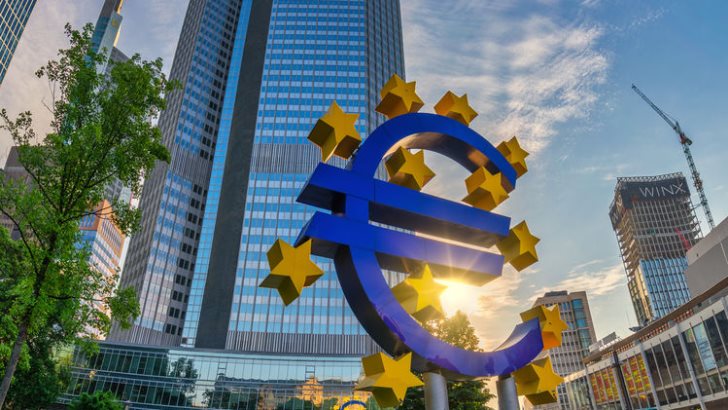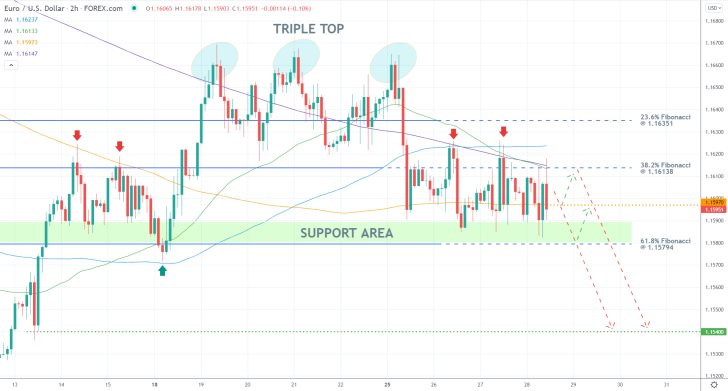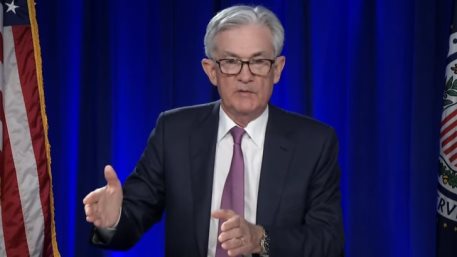
The October monetary policy decision of the European Central Bank did not envision any transformational changes. However, the slightly more hawkish tone of the bank affected the euro in the short term. Have a look at our previous analysis of the EURUSD to get a better sense of the broader market sentiment.
The European Central Bank, chaired by Christine Lagarde, expectedly decided to maintain the Main Refinancing Rate unchanged at 0.00 per cent. Even though the scope of the Pandemic Emergency Purchase Programme (PEPP) was not altered, the Governing Council of the ECB deemed it necessary to dial back the pace of its purchases. This caused an immediate uptick in volatility on the EURUSD.

The price action of the pair remains concentrated within the boundaries of a small consolidation range, spanning between the 61.8 per cent Fibonacci retracement level at 1.15794 and the 38.2 per cent Fibonacci at 1.16138.
However, the recent development of a Triple Top, which is a classic trend reversal pattern, signifies the likely emergence of a subsequent downtrend. This would depend on whether the price action manages to break down below the 200-day MA (in orange), which currently underpins the support level at 1.15970.
Notice that the 50-day MA (in green) and 300-day MA (in purple) converge with the upper limit of the range (the 38.2 per cent Fibonacci), which makes the latter an even more prominent threshold. This substantiates the expectations for the accumulation of additional selling pressure over the near term.
If the price action manages to penetrate below the 61.8 per cent Fibonacci decisively, the next target for the new downtrend would likely be the previous swing low at 1.15400.
More hawkish-sounding ECB
The decision of Christine Lagarde and her colleagues from the Governing Council to dial back the pace of ECB's pandemic purchases is underpinned by the slow global recovery that has been recorded over the previous quarter.
Press release: Monetary policy decisions https://t.co/R4dc0aGg33
— European Central Bank (@ecb) October 28, 2021
In the monetary policy statement, it was argued that:
"The Governing Council will continue to conduct net asset purchases under the PEPP with a total envelope of €1,850 billion until at least the end of March 2022 and, in any case, until it judges that the coronavirus crisis phase is over. The Governing Council continues to judge that favourable financing conditions can be maintained with a moderately lower pace of net asset purchases under the PEPP than in the second and third quarters of this year."
Trendsharks Premium
Gold is undergoing a correction, as investors take profits to offset losses from falling stock prices, impacting their margins. However, we anticipate a renewed wave of [...]
The Swiss stock market index is mirroring its global counterparts, such as Germany 40 and US100, experiencing a sharp decline following the announcement of new [...]
We’re analyzing the weekly chart to grasp the broader market trend. Over the past three years, the US30 index has surged by 17,000 points, often resembling a nearly straight [...]
Over the past week, the DAX has experienced a sharp decline, plunging by an astonishing 3,400 points. This downward movement is not isolated, as its international counterparts, such as the UK100 and US100, are also facing significant [...]
EURUSD recently formed a double top at 1.0930, signaling a potential trend reversal, and has since begun a correction. After a 600-pip rally since early March, a pullback at this stage is both expected and healthy. Given these conditions, we are placing a [...]
Since early March, EURJPY has surged nearly 1,000 pips, providing us with several excellent trading opportunities. However, as the rally matures, many early buyers are beginning to take profits, leading to a noticeable slowdown in the uptrend. On Friday, the pair formed a [...]
The AUDJPY currency pair continues to be dominated by bullish momentum, as multiple golden cross patterns reaffirm the strength of the ongoing uptrend. Despite this, we are witnessing a much-needed [...]
The EURAUD currency pair appears to be undergoing a trend reversal, signaling a potential shift in market direction. A notable technical development is the formation of a Death Cross on the chart, a widely recognized bearish indicator that typically suggests a [...]
After securing an impressive 200-pip profit last week, the EURJPY currency pair is now undergoing a southward correction, retracing some of its recent gains. Despite this temporary pullback, the Golden Cross remains intact, reinforcing our view that the overall trend continues to be [...]
The appearance of a Golden Cross in Silver strengthens our analysis that the metal is currently in a strong uptrend, indicating further bullish momentum in the market. This technical pattern, where the short-term moving average crosses above the [...]
This trade presents a considerable level of risk and can be classified as an opportunistic move based on recent price action. The GBPUSD currency pair has experienced a substantial bullish rally, surging by nearly 500 pips in a strong upward movement. However, after this extended period of appreciation, the pair is showing signs of a potential [...]
The anticipated Death Cross on the SMI20 appears to be failing as price finds strong support at the 23% Fibonacci retracement level. After testing this area, the index has shown bullish strength, printing several large green candles, signaling an increase in [...]
A Golden Cross has just appeared on the USDJPY chart, signaling a potential bullish move. This technical pattern occurs when the 20 period moving average crosses above the 60 period moving average, a widely recognized indication of increasing [...]
After 2 months of a down trend, we finally see some indications of price recovery for Oil. The golden cross, a historic buy signal, supports this [...]
For the past month, the German DAX40 has experienced a remarkable 10% surge, reflecting strong bullish momentum. Despite ongoing market volatility and frequent pullbacks, every dip continues to attract fresh buyers, reinforcing the [...]
Oil continues its downward trajectory, despite occasional pullbacks. The overall trend remains bearish, reinforced by multiple Death Cross patterns, a classic sell signal indicating further weakness. Adding to this bearish outlook, the critical [...]
Over the past few days, gold has experienced a sharp decline of more than $100. This downturn can be attributed in part to traders securing profits to manage their margins, which are under strain due to the significant drop in major indices. Currently, gold has fallen below the [...]
The NASDAQ 100 index is showing strong bullish momentum, as evidenced by the formation of a Golden Cross on the chart. This classic buy signal occurs when the short moving average crosses above the long term moving average, suggesting that upward momentum is [...]
The EURAUD currency pair has encountered a significant resistance level, failing to break above the critical 61% Fibonacci retracement level. This suggests that bullish momentum is weakening, reinforcing the case for a potential downward move. Given this technical setup, we favor entering a [...]
The UK100 is experiencing a remarkable rally! Over the past few weeks, the British stock market index has surged nearly 800 points. Each minor dip has attracted more buyers, fueling the bullish momentum. However, since last week, we’ve observed a slight [...]




















